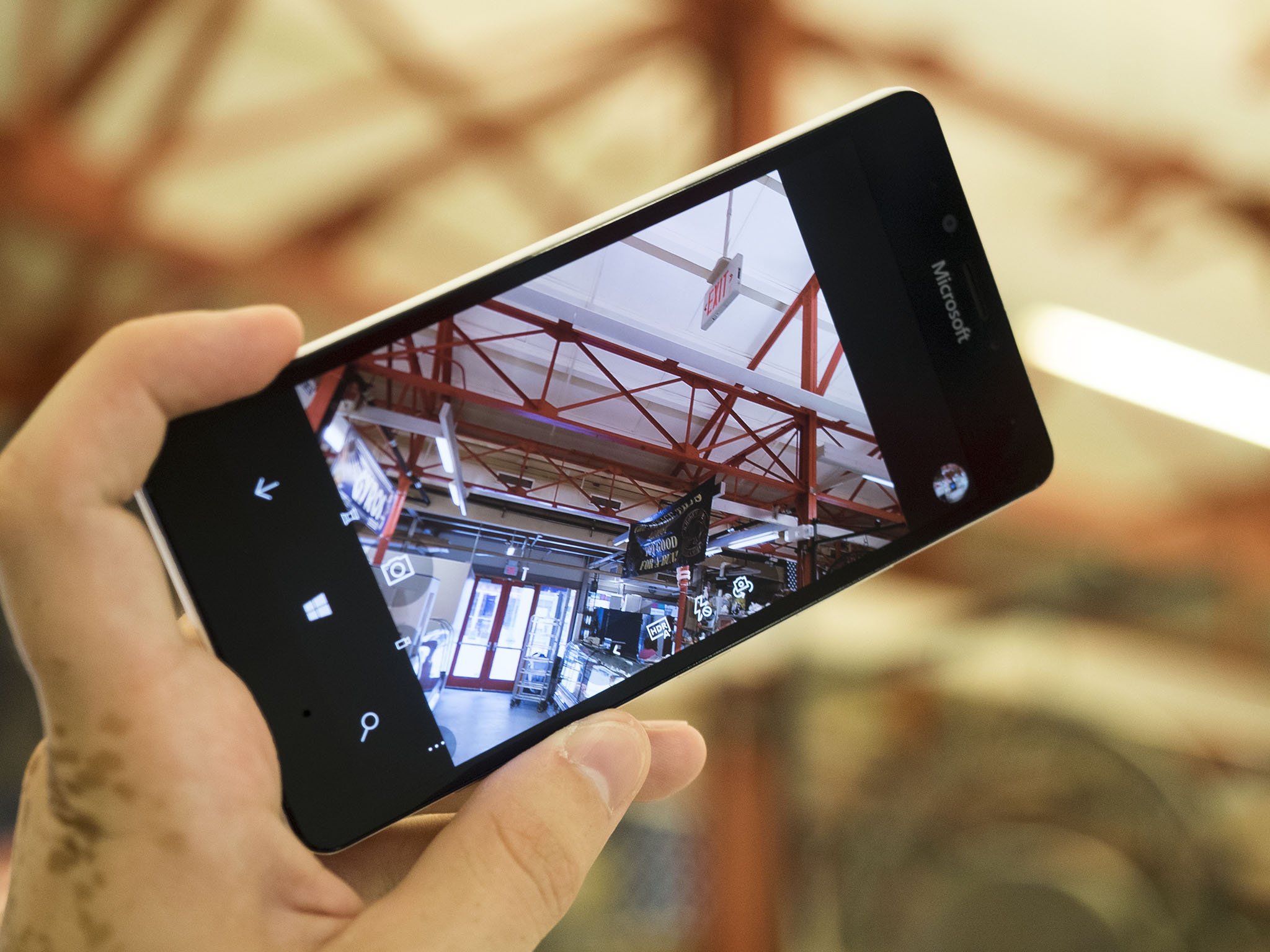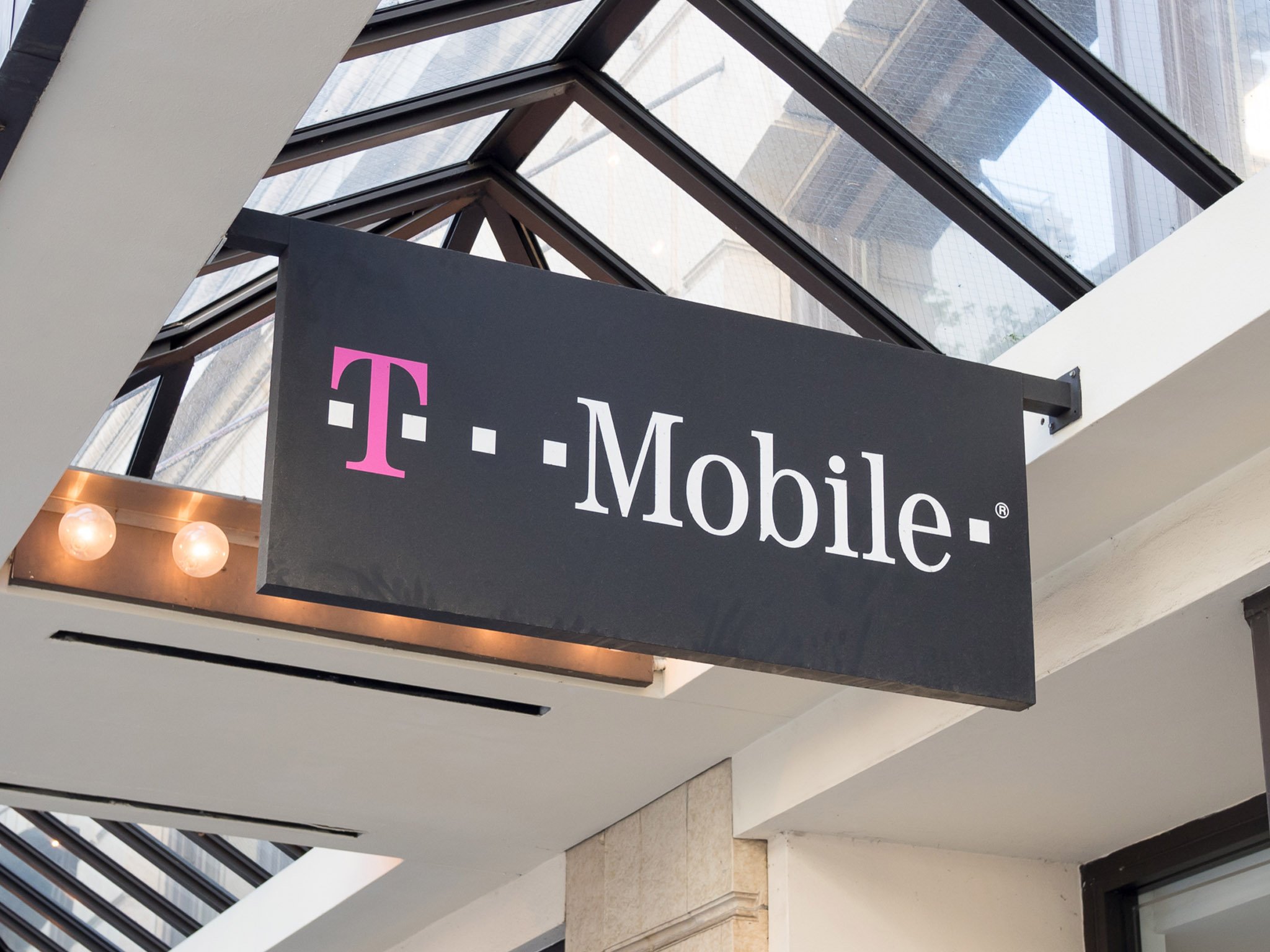Which unlimited plan should you buy: AT&T, Sprint, T-Mobile or Verizon?
The four major carriers in the U.S. don't necessarily offer Windows phones (though phones that run Microsoft's OS work on some of their networks), but they all offer unlimited data plans.

Whether you're a Microsoft diehard who packs a Windows phone, or an iPhone- or Android-toting Windows fan, here's how to find the best unlimited data plan for you.
With Verizon bringing back an unlimited data plan, the big four networks in the United States (AT&T, Sprint, T-Mobile, and Verizon) all carry an unlimited data plan now. That's important for power users as well as anyone who uses their mobile broadband internet as their sole way to stay in touch or for entertainment. The cost of data overages means that unlimited data is a must for many of us.
But just because everyone offers unlimited data doesn't mean that all plans are equal. Pricing is important as are "extras" like tethering and the hidden data cap that pushes you back to slower 3G speeds when you reach it. And of course, zero-rating means we have to pay attention to what unlimited means when it comes to the quality of streaming media as well as the source.
We took a look at what each carrier has to offer so we can decide who delivers the very best unlimited data package. Let's start with a look at the details for each carrier.
AT&T
Unlimited Plus
- Unlimited talk, text, and data
- 10 GB mobile hotspot (tethering)
- Unlimited talk and text to Canada and Mexico
- Advanced messaging between compatible phones on the AT&T network
- Unlimited talk, text, and data in Canada and Mexico with free Roam North America Feature (if more than 50% of use is outside the U.S. the plan can be terminated)
- Unlimited music and video streaming with optional Stream Saver for less data use
- $25 monthly credit for DirecTV services
- One line of service on an AT&T Unlimited Plus plan is $90
- Two lines of service for $145
- Up to eight additional lines (includes any phone, LTE tablets, LTE hotspots and connected cars) for $20 per line
- Add a wearable for $10 per month
Unlimited Choice
- Unlimited talk, text, and data
- Data speeds capped at 3Mbps
- Standard definition video streaming
- One line of service on an AT&T Unlimited Choice plan is $60
- Two lines of service for $115
- Up to eight additional lines (includes any phone, LTE tablets, LTE hotspots and connected cars) for $20 per line
- Add a wearable for $10 per month
Everything you need to know about AT&T's unlimited plans
Get the Windows Central Newsletter
All the latest news, reviews, and guides for Windows and Xbox diehards.
Check out our review of the AT&T Lumia 950 Windows phone
Sprint Unlimited Freedom plan
- Unlimited talk, text, and data (with certain restrictions)
- Unlimited data for streaming video up to 1080p
- Unlimited data for gaming up to 8Mbps
- Unlimited data for streaming music up to 1.5Mbps
- 10GB high-speed mobile hotspot with VPN and P2P support
- Add a tablet with unlimited data for $25 per month
- One line of service is $50
- Two lines of service is $90
- Three lines of service is $90
- Four lines of service is $90
Everything you neeed to know about Sprint's Unlimited Freedom Plan
T-Mobile
- Unlimited talk, text, and data with 200MB of roaming data
- Unlimited talk, text, and data in Canada and Mexico
- One hour of free Gogo in-flight Wi-Fi and unlimited texting on enabled flights
- Unlimited data and texting in over 140 locations at 2x speed (264kbps) (limited time offer)
- Unlimited music and HD video streaming (limited time offer, applies only in the U.S.)
- 10GB high-speed mobile hotspot use (limited time offer)
- One line of service on a T-Mobile ONE plan is $70
- Two lines of service for $100
- Three lines of service for $140
- Four lines is $160 and each additional line adds $20 to the total
A promotion starting March 1, 2017, allows post-paid customers with two or more lines to add another line free. This offer applies to T-Mobile ONE, Simple Choice and Simple Choice No Credit plans
Everything you need to know about T-Mobile's unlimited plans
Check out our review of T-Mobile's Alcatel Idol 4s
Verizon
Verizon used to have a single unlimited plan, but it has since expanded that to two, offering various levels of value depending on customer need.
Go Unlimited
Go Unlimited is the cheaper of the unlimited plans, aimed at users that don't necessarily need the fastest performance at all times or high-quality video streaming.
- One line: $75/month
- Two lines: $65 per line/month
- Three lines: $50 per line/month
- Four or more lines lines: $40 per line/month
Paper-free billing and $5/mo AutoPay discounts apply.
The Go Unlimited plan offers unlimited LTE data, but you're subject to reduced speeds (throttling) when the network is congested. Verizon may choose to throttle at any time of the billing cycle, which is unlike most other unlimited plans that only do so after a certain amount of data is used.
On Go Unlimited, all video streaming is capped at 480p on phones and 720p on tablets. And while the Go Unlimited plans offer unlimited mobile hotspot (tethering), the speed is capped at 600kbps, which is likely too slow for most people to do anything other than browse the web — slowly.
Beyond Unlimited
Beyond Unlimited is basically Verizon's original unlimited plan with some slight tweaks.
- One line: $85/month
- Two lines: $80 per line/month
- Three lines: $60 per line/month
- Four or more lines: $50 per line/month
Paper-free billing and $5/mo AutoPay discounts apply.
The Beyond Unlimited plan offers unlimited LTE data, but you're subject to reduced speeds (throttling) at times of network congestion if you exceed 22GB in a billing cycle (customers that sign up on a two-year contract get 25GB per month before throttling).
Video streaming is capped at 720p on phones and 1080p on tablets. Mobile hotspot use is unlimited, with 15GB of LTE data in each billing cycle. Laptops or other devices used through the hotspot have a 1080p hard cap for streaming video.
Everything you need to know about Verizon's unlimited plan
The best unlimited data plan

The best plan is the one that works where you need it to work, not the one that's the cheapest. And we can't tell you which that one is because it's different for each of us. Paying more than you need to for phone service is a bad idea, but so is paying for service that doesn't work.
Generally, if you live outside of a metropolitan area that means Verizon. A look at live, user generated coverage maps from Open Signal shows there are significant gaps in T-Mobile's coverage outside of metro areas. You will pay more for Verizon service when compared to T-Mobile (especially once taxes and fees are applied) but chances are Verizon will have the best coverage if you're in a rural area. There are exceptions, so be sure to investigate before you give any company your money.
If you're part of the 90% of the U.S. population who lives in a large town or city, your choices are expanded. T-Mobile is a great choice, as even with the One Plus add-on fee of $10 per month you'll still save money because they include taxes and fees in the cost.
Sprint's pricing offers an incredible value, but there are some very valid concerns about their network footprint. These can't be ignored when talking about "the best", though. Sprint has taken great strides to improve their coverage, and if Sprint works everywhere you need it to work, you should definitely take a look at what they have to offer.
Of course, none of this includes any customer-loyalty offerings or legacy plans you might be using. In those cases, you might want to stick with the carrier you have now instead of switching because of new pricing or new promotions.

All this makes it very difficult to make a one-size-fits-all recommendation about which plan is the best. If you need nationwide coverage in places that might be a little out of the way, Verizon is a better value than AT&T and generally has a better network according to independent studies from sources like Root Metrics. If you stay on the beaten path, T-Mobile offers the better deal.
We can't tell you which carrier will be the best for you. But we can tell you what to look for and where to start. Talk to your friends and see what service they are using and how well it's working, and call each company to see exactly what they have to offer. Most carriers have plans they don't advertise and one may fit your needs better than the default unlimited plans.
We just want you to enjoy the service you're paying for!
Your turn
What carrier do you subscribe to, and are you thinking of switching to either T-Mobile or Verizon? Let us know in the comments!
This post was updated on August 24, 2017 with the latest information.
I'm an RHCE and Electrical Engineer who loves gadgets of all kinds. You'll find my writings across Mobile Nations and you can hit me on Twitter if you want to say hey.

